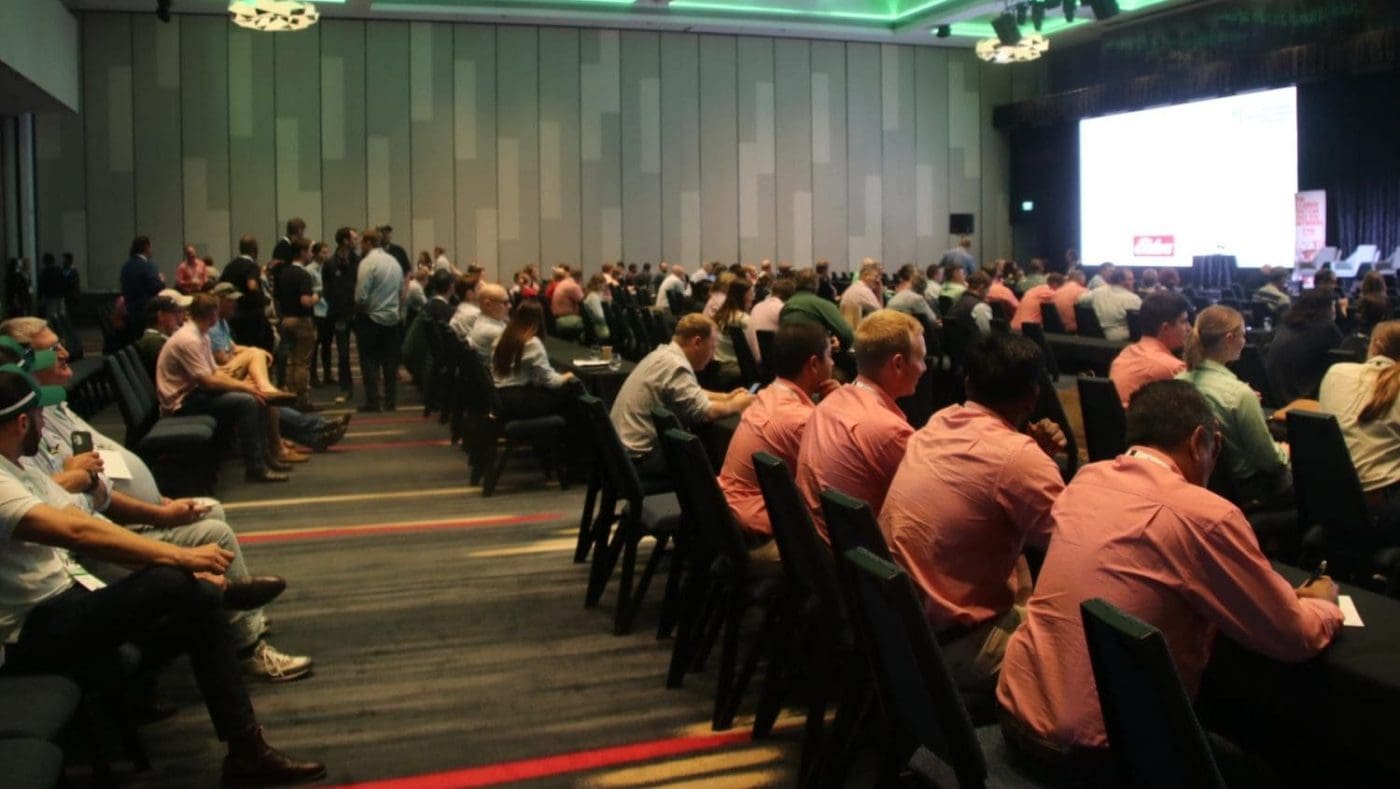Reducing Methane Emissions in the Beef Industry: A Heated Debate

<p>The head of a research organization established to mitigate agricultural emissions has strongly criticized claims that the beef industry need not reduce methane emissions. Richard Heath, the CEO of the Net Zero Emissions in Agriculture Cooperative Research Centre (CRC), recently addressed attendees at the Australian Summer Grains Conference on the Gold Coast, outlining the beneficial impact of reducing methane emissions.</p>
<div id="attachment_242242" style="width: 410px" class="wp-caption alignleft">
<img decoding="async" aria-describedby="caption-attachment-242242" class="wp-image-242242"
src="https://www.beefcentral.com/wp-content/uploads/2025/07/Screenshot-2024-01-17-at-11-07-51-Richard-Heath.png"
alt="Richard Heath" width="400" height="262"
srcset="https://www.beefcentral.com/wp-content/uploads/2025/07/Screenshot-2024-01-17-at-11-07-51-Richard-Heath.png 488w,
https://www.beefcentral.com/wp-content/uploads/2025/07/Screenshot-2024-01-17-at-11-07-51-Richard-Heath-400x262.png 400w"
sizes="(max-width: 400px) 100vw, 400px"/>
<p id="caption-attachment-242242" class="wp-caption-text">Richard Heath</p>
</div>
<p>Mr. Heath emphasized that reducing methane emissions is both profitable and productive. His organization is actively exploring ways to incentivize producers through financial rewards, such as carbon credits. During the Q&A session after his presentation, he expressed his disagreement with a sizable portion of the livestock industry that believes methane emissions should not be a priority.</p>
<p>“The arguments they use are based on the notion that methane breaks down quickly, which makes it seem stable year on year,” he remarked. “I think that is rubbish; we absolutely need to reduce methane emissions. They have a more immediate impact on warming compared to carbon dioxide.”</p>
<p>The debate regarding how methane emissions are calculated has persisted for years, with numerous scientists from esteemed institutions—including the University of Oxford, University of California, and CSIRO—pointing out that stable methane emissions may be overstated in global accounting frameworks.</p>
<p><a href="https://www.elanco.com/en-au/news/review-your-buffalo-fly-control-now">
<img decoding="async" class="alignleft wp-image-242091 size-full"
src="https://www.beefcentral.com/wp-content/uploads/2025/07/Elanco-Ear-Tags-Floating-MREC-Jul25.gif"
alt="Elanco" width="300" height="250"/></a>
Mr. Heath advocated for focusing discussions on shared values, such as long-term financial viability. “Conversations tend to veer off course when discussing rates of breakdown and warming potential,” he noted. “What truly matters is our desire to protect our farms for future generations, which are indeed threatened by climate change.” He asserted that prompt action on methane reduction could greatly benefit the industry with available technologies that can be implemented immediately.</p>
<h2>Calls to Avoid Dismissing Beef Producers</h2>
<p>The Australian beef industry recently opted to abandon its target to achieve carbon neutrality by 2030, following appeals from Cattle Australia to reassess the industry’s emission strategies.</p>
<p>
<img decoding="async" class="wp-image-218839 alignright"
src="https://www.beefcentral.com/wp-content/uploads/2023/05/Adam-Coffey.jpg"
alt="Adam Coffey" width="300" height="402"
srcset="https://www.beefcentral.com/wp-content/uploads/2023/05/Adam-Coffey.jpg 478w,
https://www.beefcentral.com/wp-content/uploads/2023/05/Adam-Coffey-299x400.jpg 299w"
sizes="(max-width: 300px) 100vw, 300px"/>
Central Queensland producer and Cattle Australia deputy chair, <strong>Adam Coffey</strong>, expressed his disagreement with Mr. Heath’s remarks. “I'm unclear about the motivations behind such comments. No one disputes that emissions reductions in the beef sector are important,” he stated. “We need to move away from blunt approaches to livestock emissions. Producers deserve respect, and more constructive engagement will yield better results.”</p>
<p>Mr. Coffey also countered the assertion that reducing methane emissions should take precedence over decreasing carbon emissions from fossil fuels. "Livestock emissions differ substantially from fossil fuel emissions, yet both are often treated the same in government inventories,” he explained. “While our emissions do contribute to atmospheric warming, they don’t accumulate in the long-term. Hence, ongoing R&D in the MLA strategic plan focuses on the biogenic carbon cycle to understand how we can positively influence it.”</p>Summary of Structure:
- Headings: Organized by topic, with a main heading and subheadings to improve navigation and SEO.
- Paragraphs: Each point is constructed in clear, concise paragraphs to enhance readability.
- Images: Properly embedded with appropriate attributes and captions.
- Links: Included for further reading and related content.



